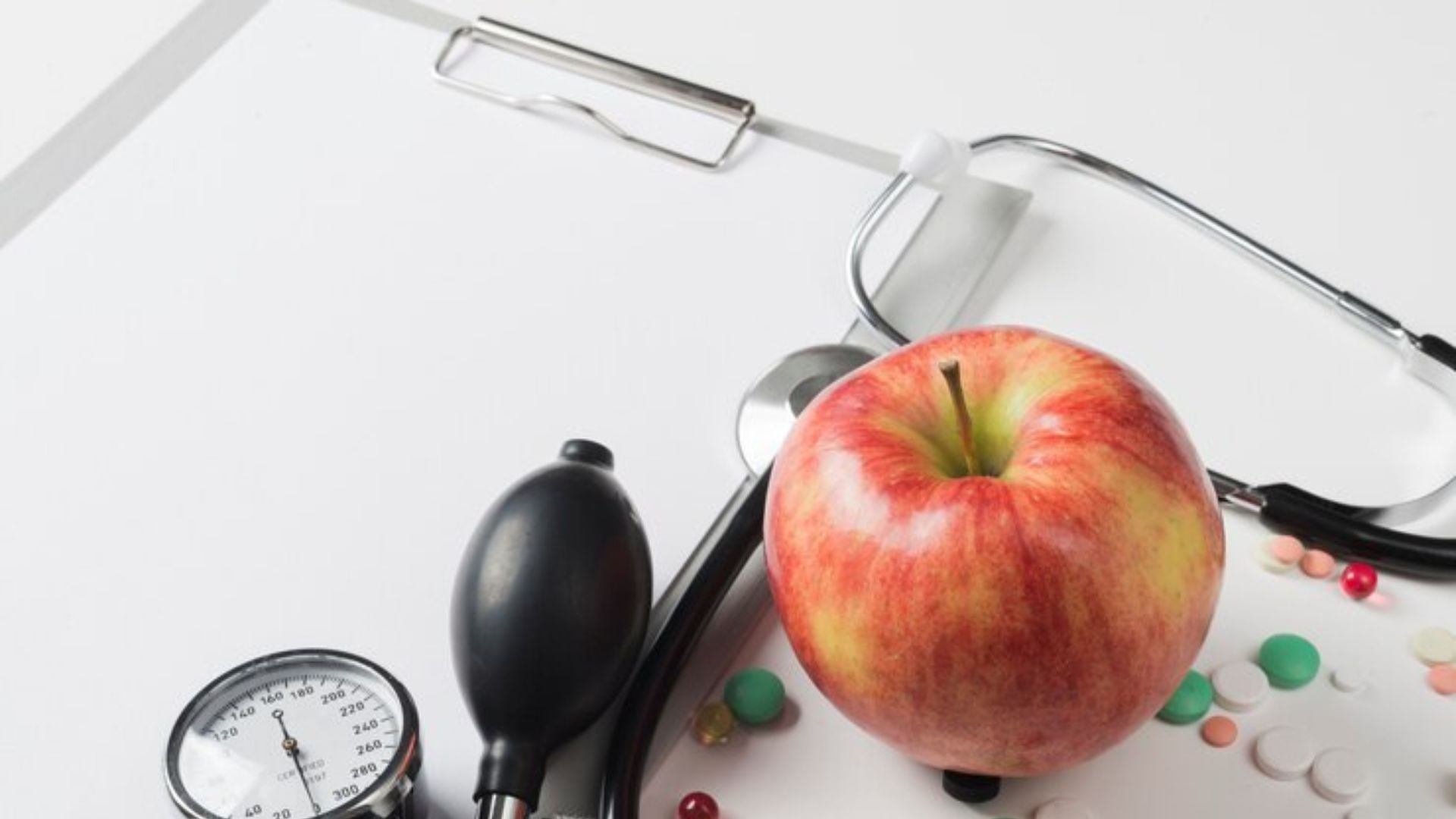High blood pressure, also known as hypertension, is a serious health condition that affects millions of people worldwide. It is often referred to as the “silent killer” because it may have no noticeable symptoms, yet it significantly increases the risk of heart disease, stroke, kidney failure, and other health problems. The good news is that there are numerous natural ways to prevent and manage high blood pressure. By adopting a healthy lifestyle, making dietary changes, reducing stress, and incorporating regular physical activity, you can keep your blood pressure in check and improve your overall well-being. In this article, we will explore how to prevent high blood pressure naturally through simple yet effective methods.
Understanding High Blood Pressure
Before diving into the prevention strategies, it’s important to understand what high blood pressure is. Blood pressure refers to the force exerted by circulating blood against the walls of the arteries. High blood pressure occurs when this force is consistently too high, putting strain on the heart and blood vessels.
A normal blood pressure reading is typically around 120/80 mmHg. Hypertension is diagnosed when blood pressure readings consistently exceed 130/80 mmHg. The condition can be caused by various factors, including genetics, poor lifestyle habits, and underlying health issues.
Maintaining a Healthy Weight
One of the most effective ways to prevent high blood pressure naturally is by maintaining a healthy weight. Excess body fat, especially around the abdomen, can increase the risk of hypertension. The more weight you carry, the harder your heart has to work to pump blood, leading to elevated blood pressure.
To prevent high blood pressure, aim to achieve and maintain a healthy weight through a combination of balanced diet and regular exercise. A weight loss of even a few pounds can have a positive impact on blood pressure and overall cardiovascular health.
Eating a Balanced Diet
A healthy diet plays a crucial role in managing and preventing high blood pressure. The foods you eat can either support or hinder your cardiovascular health. A diet rich in fruits, vegetables, whole grains, lean proteins, and healthy fats can help lower blood pressure levels.
Key dietary recommendations to prevent high blood pressure include:
Increasing Potassium Intake: Potassium helps balance out the negative effects of sodium and eases tension in the blood vessel walls. Foods like bananas, spinach, potatoes, and oranges are excellent sources of potassium.
Reducing Sodium Intake: High sodium levels can increase blood pressure, so it is essential to limit your intake of salt and processed foods. Aim for no more than 2,300 mg of sodium per day, or ideally, 1,500 mg for most adults.
Consuming Omega-3 Fatty Acids: Omega-3 fatty acids have been shown to reduce blood pressure. Fatty fish such as salmon, mackerel, and sardines are excellent sources of omega-3s.
Limiting Processed Foods and Sugars: Processed foods are often high in sodium and unhealthy fats, which can contribute to high blood pressure. Reducing your intake of processed foods and added sugars is key to maintaining healthy blood pressure levels.
Regular Physical Activity
Exercise is another powerful way to prevent high blood pressure naturally. Regular physical activity strengthens the heart, allowing it to pump blood more efficiently. It also helps improve circulation, which can reduce pressure on the arteries.
Aim for at least 30 minutes of moderate-intensity exercise, such as brisk walking, cycling, or swimming, on most days of the week. Aerobic exercises like these help lower both systolic and diastolic blood pressure. If you have a sedentary lifestyle, start slowly and gradually increase your activity level.
Strength training can also contribute to better blood pressure control. Incorporating resistance exercises, such as weightlifting or bodyweight exercises, into your routine twice a week can provide additional benefits.
Managing Stress
Chronic stress is a known contributor to high blood pressure. When you’re stressed, your body releases hormones like adrenaline and cortisol that temporarily raise blood pressure. Over time, repeated stress can contribute to long-term hypertension.
To prevent high blood pressure naturally, it’s important to find effective ways to manage stress. Some strategies include:
Meditation: Practicing mindfulness meditation can help calm the mind and reduce stress levels. Just a few minutes of meditation each day can have a significant impact on lowering blood pressure.
Deep Breathing Exercises: Deep breathing techniques, such as diaphragmatic breathing, can activate the body’s relaxation response and help lower heart rate and blood pressure.
Yoga: Yoga combines deep breathing with physical postures, which can help reduce stress, improve circulation, and lower blood pressure.
Getting Enough Sleep: Lack of sleep is a common cause of elevated blood pressure. Aim for 7-9 hours of quality sleep each night to help keep your blood pressure in a healthy range.
Limiting Alcohol and Caffeine
Both alcohol and caffeine can raise blood pressure, especially when consumed in large quantities. Limiting alcohol intake to no more than one drink per day for women and two drinks per day for men is advisable.
Similarly, caffeine, found in coffee, tea, and some sodas, can temporarily raise blood pressure. If you’re sensitive to caffeine, consider reducing your consumption or switching to decaffeinated beverages.
Quitting Smoking
Smoking is a major risk factor for developing high blood pressure and cardiovascular disease. The chemicals in cigarettes can damage blood vessels, leading to narrowing and hardening of the arteries. This increases resistance and elevates blood pressure.
Quitting smoking is one of the best decisions you can make for your heart and overall health. While the immediate effects of quitting may include temporary weight gain or irritability, the long-term benefits of lower blood pressure and a reduced risk of heart disease far outweigh these challenges.
Natural Supplements and Herbs
Certain natural supplements and herbs have been shown to support healthy blood pressure levels. While supplements should never replace a healthy lifestyle, they can provide additional benefits when used alongside other preventive measures. Some supplements that may help lower blood pressure include:
Garlic: Garlic has been shown to lower both systolic and diastolic blood pressure. You can consume raw garlic or take garlic supplements.
Coenzyme Q10 (CoQ10): CoQ10 is an antioxidant that may help reduce high blood pressure. It is available in supplement form.
Hibiscus Tea: Hibiscus has been shown to have a modest effect in lowering blood pressure. Drinking hibiscus tea regularly may help keep blood pressure in check.
Magnesium: Magnesium plays a vital role in blood pressure regulation. You can get magnesium from foods like leafy greens, nuts, seeds, and whole grains, or take it as a supplement if necessary.
Regular Monitoring of Blood Pressure
To prevent high blood pressure, it’s important to monitor your blood pressure regularly. Home blood pressure monitors are widely available and easy to use. By keeping track of your readings, you can identify any changes and take action early to prevent hypertension.
If your blood pressure readings consistently fall outside the normal range, it’s crucial to consult a healthcare provider for further evaluation and management. Regular check-ups with your doctor can also help catch any underlying health conditions that may contribute to high blood pressure.
Conclusion
Preventing high blood pressure naturally involves making a series of lifestyle changes aimed at improving overall heart health. By eating a balanced diet, maintaining a healthy weight, staying active, managing stress, and avoiding harmful habits like smoking and excessive alcohol consumption, you can reduce your risk of developing hypertension. Additionally, incorporating natural supplements and regularly monitoring your blood pressure can help you stay on top of your health. Remember, consistency is key when it comes to blood pressure prevention, and small changes can lead to significant long-term benefits.
ALSO READ:How To Get Rid Of Bloating Fast: Effective Tips for Instant Relief
FAQs
Can high blood pressure be reversed naturally?
While high blood pressure can’t always be completely reversed, it can often be managed and significantly lowered through natural methods like diet, exercise, and stress management.
How long does it take to lower blood pressure naturally?
The time it takes to lower blood pressure naturally varies depending on the individual. With consistent lifestyle changes, improvements can often be seen within a few weeks to a few months.
What is the best diet for preventing high blood pressure?
A diet rich in fruits, vegetables, whole grains, lean proteins, and healthy fats, while low in sodium and processed foods, is ideal for preventing high blood pressure.
Is exercise really effective in preventing high blood pressure?
Yes, regular physical activity is highly effective in preventing and managing high blood pressure. Exercise helps improve heart function and blood flow, reducing the strain on your arteries.
How can I reduce stress to prevent high blood pressure?
Effective stress management techniques such as meditation, deep breathing, yoga, and adequate sleep can help reduce stress levels and prevent high blood pressure.







